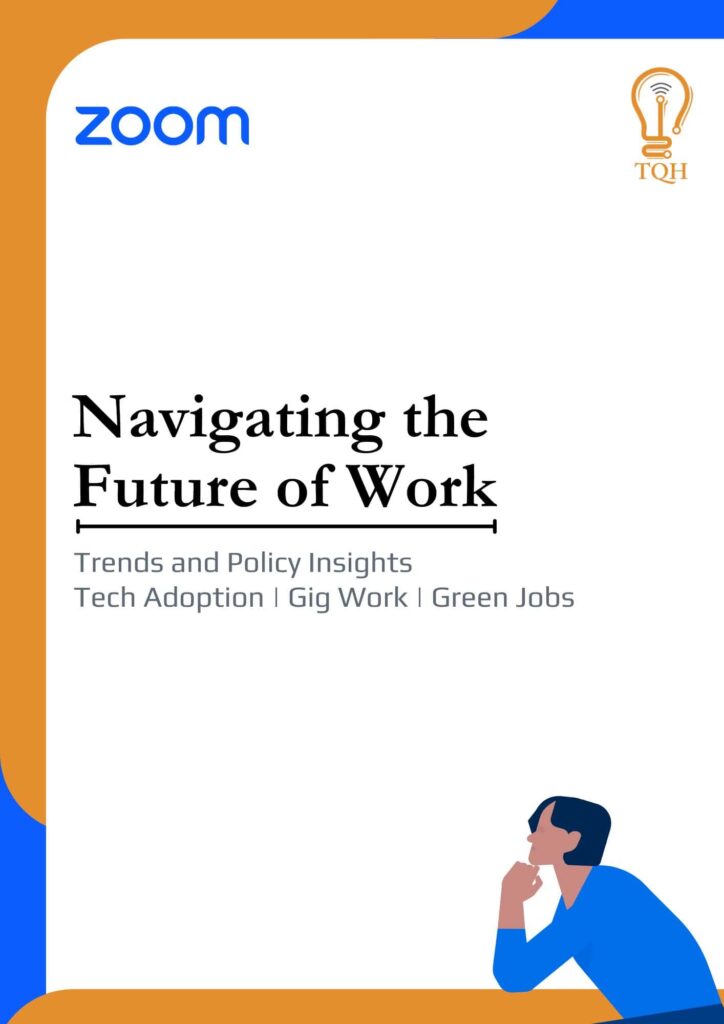Date:
May 2025
Author/s:
Swathi Rao, Shubham Mudgil & Kaushik Thanugonda
Research Lead:
Navigating the Future of Work
Rapid technological advancements in recent decades have significantly altered how we work and where we work. These changes are transforming humanity’s relationships with labour, marking a fresh phase in human progress. Advancements like artificial intelligence (AI) and machine learning (ML) are blurring the lines between physical and digital domains, presenting a new landscape of both immense opportunity and potential risk.
India is at the forefront of this revolution. The economy-wide adoption of advanced technologies like AI and expedited digitization due to initiatives like the Digital India Mission is driving transformation across industries. With the rapid uptake of frontier technologies, human-machine interaction is likely to dictate the skills and competencies required of employees in order to remain competitive and employable. As automation increasingly augments and, in some cases, substitutes human labour, the workforce must adapt by acquiring new proficiencies and embracing interdisciplinary collaboration. An example is the growth of the gig economy. Enabled by technology and characterised by task-based work, short-term contracts or freelance work, the gig economy offers both opportunities and challenges for workers and employers alike.
While adoption of technology is changing the nature of work, other “non-tech” elements like climate change are also redefining how we work. Increasingly there is growing emphasis on sustainability and reducing the carbon footprint of human activity. This has led to the emergence of “green jobs” that require specialised “green skills”. This shift towards sustainability aligns with global efforts to combat climate change and promote environmental conservation.
Additionally, societal shifts have brought forth new priorities in the workplace. The COVID-19 pandemic accelerated the adoption of flexible work arrangements, prompting companies to prioritise employee-centric approaches that enhance work-life balance and productivity. Flexible work models empower employees to dictate their work schedules, enable organisations’ access to diverse talent pools, and also aid in minimising environmental impact. This evolving nature of work is also altering established concepts of the workplace – redefining it beyond physical boundaries to encompass private spaces like homes and even virtual spaces that are being enabled via the use of technologies like augmented and virtual reality.
This new transformed landscape necessitates a reevaluation of our definition of work and the regulations governing it. Definitions and regulations governing workplaces and workers have hitherto been driven by infrastructure-heavy businesses, classical manufacturing or IT/ITes models, and overlook the agility demanded by today’s work ecosystem.
This report sheds light on the trajectory of these developments, and offers policy recommendations to navigate the complexities of the “Future of Work” in India.
